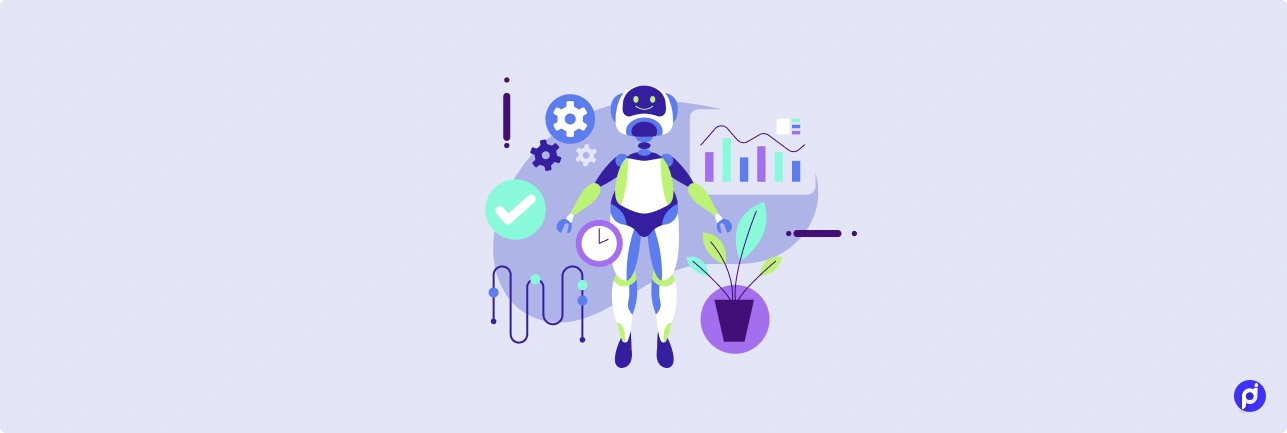Handling business processes manually gives you less efficiency and when it’s done by machines you can reach higher efficiency. Artificial Intelligence and Machine learning is a truth today that you must accept. It is accepted worldwide and organizations who are dwelling in United States are crazy to get solutions that can optimize distribution system which consists of processes from the manufacturing stage to the final customer. This increases the demand for an AI/ML Development services provider who can provide tools that promote automated distribution.
Distribution Management in AI era
Every time there is a change and a change lead towards progress. Previously, distribution management was cumbersome and time consuming. However, when paired with AI/ML Development Services, the potential of these systems is significantly amplified. AI and machine learning bring the power of data-driven decision-making and real-time adaptability, allowing ADMS to respond intelligently to shifting market dynamics, customer demands, and unexpected disruptions. Reliance on machine learning app development can help business improve their distribution through minimal human intervention. This results in better route optimization, smarter inventory tracking, and a more agile response to market fluctuations.
AI-Powered Distribution Management:
The advantages of AI-powered distribution management are:
- Proper and Timely Demand Forecasting: Your product will have different demand levels at different times and AI algorithms can assess past data and predict what will exactly happen in future.
- Route Optimization: AI-powered systems can analyze traffic patterns, weather conditions, and delivery schedules in real-time to determine the most efficient delivery routes, reducing operational costs and improving delivery times.
- Higher Efficiency: Automation and machine learning reduce the need for manual intervention, leading to fewer human errors, improved accuracy, and faster response times in the distribution network.
Why Do You Need the Assistance of an AI/ML Development Services Provider?
- You must know that competition is rising, and efficiency is a prime subject of discussion. AI-powered ADMS systems enable companies to:
- Competing with Trends: AI algorithms can detect patterns and anticipate changes in customer behavior, giving businesses the ability to adapt quickly.
- Enhance Customer Satisfaction: Through inventory optimization businesses can ensure on-time deliveries and accurate stock levels, which are essential for customer satisfaction.
- Fighting Rivals: AI powered systems nourish your business with efficiency so that you can outplay your rivals.
Finishing Off
Businesses which understand the true meaning of an efficient distribution management system are ready to use AI/ML. The power of AI/ML is not confined to American organizations, but it can impact businesses in other regions too. AI/ML Development service providers are encouraging every business to stay updated with the latest technologies and automate their business process. The integration of AI and machine learning into distribution management systems is not just a trend; it’s the future of efficient, data-driven operations.
FAQs: 1. What is AI-powered distribution management?
AI-powered distribution management refers to the integration of Artificial Intelligence (AI) and Machine Learning (ML) into distribution systems to optimize processes such as route planning, demand forecasting, and inventory management. AI-driven algorithms analyze historical data and real-time conditions to enhance decision-making, minimize human errors, and improve operational efficiency.
2. How can AI and machine learning improve demand forecasting in distribution management?
AI and machine learning analyze past data to predict future trends in product demand. These algorithms consider variables like seasonal fluctuations, market trends, and customer behavior, ensuring businesses can stock the right products at the right time. This leads to more accurate demand forecasting, reducing the chances of overstocking or stockouts.
3. What are the benefits of using AI for route optimization in distribution?
AI-powered systems analyze factors like traffic, weather, and delivery schedules in real-time to determine the most efficient delivery routes. This reduces operational costs, improves delivery times, and helps businesses provide timely service to customers, contributing to overall improved efficiency and cost savings.
4. Why do businesses need an AI/ML development services provider for distribution management?
An AI/ML development services provider helps businesses integrate cutting-edge technologies into their distribution management systems. They offer custom AI-driven solutions, such as demand forecasting, route optimization, and inventory tracking, allowing businesses to stay competitive, enhance customer satisfaction, and streamline operations with minimal human intervention.
5. How can AI-powered distribution management impact customer satisfaction?
AI-powered distribution management systems ensure on-time deliveries, accurate stock levels, and optimized inventory management. By predicting demand and reducing human errors, businesses can meet customer expectations more effectively, improving satisfaction and loyalty through reliable and efficient service.















